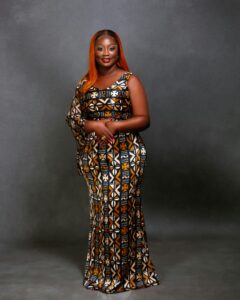By Onyinyechi Chukwuma.

Fashion transcends mere clothing. It is a profound reflection of cultural identity and heritage, encapsulating traditions, values, and histories through the expressive language of attire. Historically, fashion has served as a medium for self-expression, allowing individuals to communicate their cultural narratives to the world.
Clothing and accessories act as powerful vehicles for expressing one’s cultural background. With various traditional garments imbued with meaning and cultural significance, in Nigeria, our attire speaks volumes about our identity, values, and traditions. Traditional garments such as Adire, Ankara, and Aso Oke are vital representations of our heritage. These textiles are often donned during special occasions and celebrations, establishing a tangible connection to our cultural roots.
The significance of traditional clothing in Nigerian culture cannot be overstated. Our attire narrates stories of community, history, and identity. The Adire fabric, for example, symbolizes Yoruba culture and heritage, with its intricate designs reflecting the wearer’s social status, age, and marital status. Similarly, the Ankara fabric, characterized by its vibrant colors and bold patterns, has become a staple in Nigerian fashion, beloved by enthusiasts around the world.
In recent years, Nigerian designers have begun to incorporate traditional elements into modern fashion, heralding a new wave of Afro-centric style. This movement celebrates Nigerian culture and identity by blending traditional patterns, colors, and textiles with contemporary designs. Visionaries such as Maki Oh, Duro Olowu, and Lisa Folawiyo lead this movement, crafting stunning pieces that showcase the beauty and richness of our culture.
The power of fashion in preserving cultural identity is exemplified by how Nigerian designers utilize traditional clothing and textiles to narrate our story. By embracing our heritage through fashion, we can safeguard traditional techniques and materials, promote cross-cultural understanding, and empower communities to reclaim and celebrate their cultural identity. As Nigerian fashion continues to evolve, it is thrilling to witness how our cultural heritage continues to shape and inspire the fashion landscape.
Fashion is a universal language that transcends cultural boundaries, and Nigerian fashion is no exception. Our traditional clothing and textiles have the potential to inspire and influence global fashion while serving as a reminder of our rich cultural heritage. As we celebrate and showcase our cultural identity through fashion, we must also recognize the importance of preserving our traditional techniques and materials for future generations.
Wearing traditional attire fosters a sense of self-confidence and comfort, as these garments are designed to promote modesty. Such attire helps individuals reconnect with their roots, particularly for those who have traveled abroad, achieved fame, and experienced culture shock. For these individuals, returning to Nigeria and encountering elements that symbolize their culture like traditional clothing can evoke nostalgia, prompting reflection on their true identity.
